Camping in the Mountains: Gear, Safety, Cooking, and More
Camping in the mountains is a thrilling way to immerse yourself in nature, but it requires careful planning and preparation. This guide covers everything you need to know to make your mountain camping trip safe, enjoyable, and memorable.
1. Essential Gear for Camping in The Mountains
Having the right gear is crucial for a successful camping experience. Here’s a detailed list of essential items:
Shelter and Sleeping
- Tent: Choose a durable, weather-resistant tent suitable for the season. A 3-season tent is ideal for most conditions.
- Sleeping Bag: Opt for a sleeping bag rated for temperatures lower than you expect to encounter. Consider a mummy-style bag for better heat retention.
- Sleeping Pad: Insulates you from the cold ground and adds comfort.
Clothing
- Moisture-Wicking Base Layers: Keep sweat away from your skin.
- Insulating Mid Layers: Fleece or down jackets for warmth.
- Waterproof Outer Layers: A good rain jacket and pants to protect against the elements.
- Hiking Boots: Sturdy, waterproof boots with good ankle support.
Cooking Equipment
- Portable Stove: A canister or liquid fuel stove for cooking meals.
- Cookware: Lightweight pots and pans, utensils, and a cutting board.
- Food Storage: Bear-proof containers or coolers to keep food safe from wildlife.
Navigation and Safety Gear
- Map and Compass: Essential for navigation, especially in areas with poor GPS signal.
- First Aid Kit: Include bandages, antiseptics, and any personal medications.
- Headlamp/Flashlight: For hands-free lighting at night.
Hydration
- Water Bottles or Hydration Bladder: Ensure you have enough water for your trip.
- Water Filter or Purification Tablets: To treat water from natural sources.
For a complete checklist, visit REI’s Camping Essentials Checklist for more details.
2. Safety Tips for Mountain Camping
Safety should always be your top priority. Here are essential safety tips to keep in mind:
Before the Trip
- Research Your Destination: Understand the terrain, weather conditions, and any potential hazards.
- Inform Someone: Let a friend or family member know your itinerary and expected return time.
During the Trip
- Stay Aware of Your Surroundings: Keep an eye out for changing weather conditions and wildlife.
- Campfire Safety: Keep campfires small and away from flammable materials. Always extinguish fires completely before leaving.
Emergency Preparedness
- Personal Locator Beacon: Consider carrying a device that can send distress signals in case of emergencies.
- Know Basic First Aid: Familiarize yourself with how to treat common injuries and illnesses.
For more safety tips, check out KOA’s Camping Safety Tips.
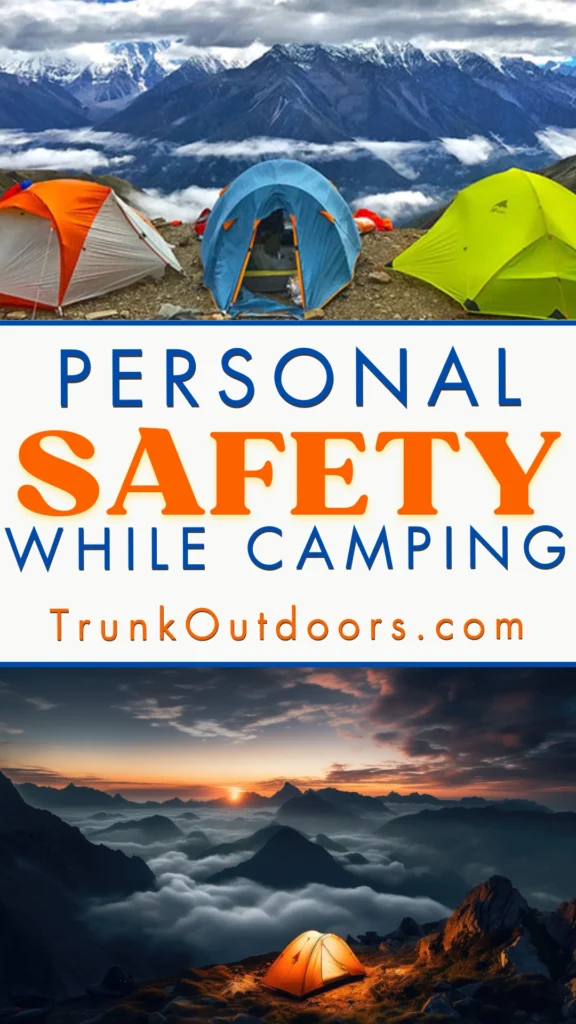
3. Essential Cooking Tips for Camping in the Mountains
Cooking in the mountains can be a rewarding experience if done right. Here are some tips:
Meal Planning
- Pre-Packaged Meals: Consider freeze-dried meals for convenience. They are lightweight and easy to prepare.
- Quick Cooking Options: Bring instant oatmeal, jerky, and nuts for quick snacks.
Cooking Techniques
- Use a Portable Stove: Ensure you have enough fuel and practice using your stove before the trip.
- Campfire Cooking: If conditions allow, use a grill grate over the fire for cooking. Always have a backup plan in case of bad weather.
Food Safety
- Store Food Properly: Use bear-proof containers and keep food away from your sleeping area to avoid attracting wildlife.
For more cooking ideas, visit Mountain House’s Best Backpacking Meals.
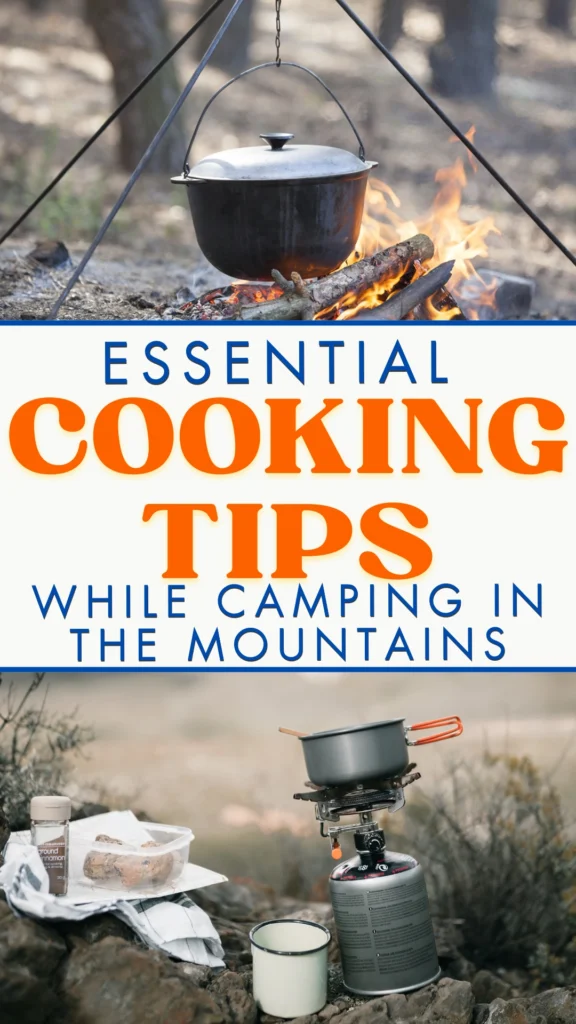
4. Weather Preparation Tips
Mountain weather can be unpredictable. Here’s how to prepare:
Check the Forecast
- Use Reliable Sources: Check mountain-specific weather forecasts for accurate information.
- Be Prepared for Rapid Changes: Always pack for colder temperatures and sudden storms.
Clothing and Gear
- Layering: Dress in layers to easily adjust to temperature changes. Include a waterproof outer layer.
- Emergency Gear: Carry a space blanket and extra warm clothing in case of emergencies.
For detailed expert weather tips, refer to Camping In 30-Degree Weather.
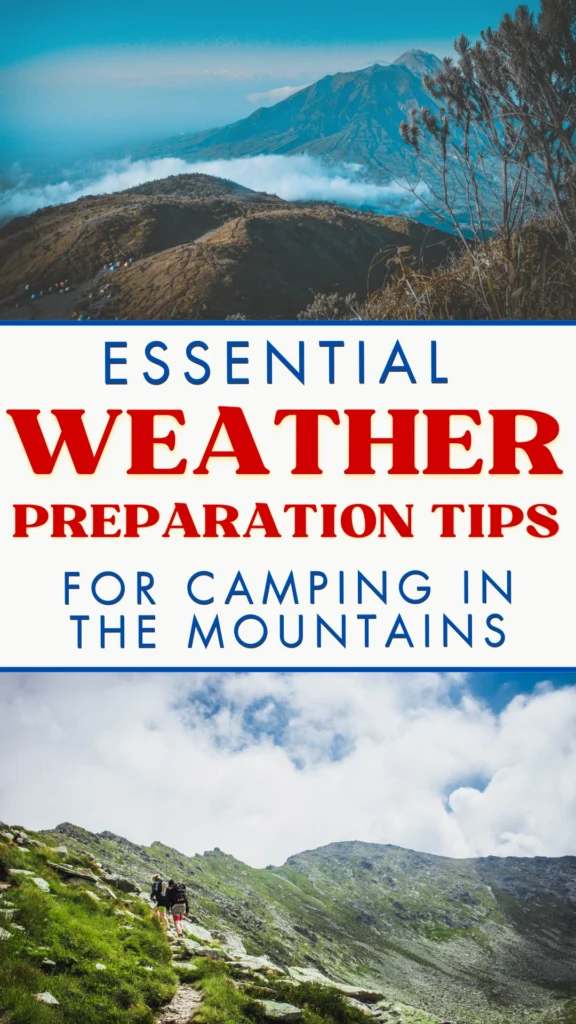
5. Wildlife Safety
Encountering wildlife can be thrilling but also dangerous. Here’s how to stay safe:
General Tips
- Keep Your Distance: Observe wildlife from a safe distance and never approach them.
- Store Food Properly: Use bear canisters and hang food away from your campsite.
Specific Animal Encounters
- Bears: If you see a bear, remain calm, back away slowly, and do not run. Make noise to alert them of your presence.
- Mountain Lions: If confronted, make yourself look larger, maintain eye contact, and back away slowly.
For more wildlife safety tips, visit Bearfoot Theory’s Wildlife Safety Tips.
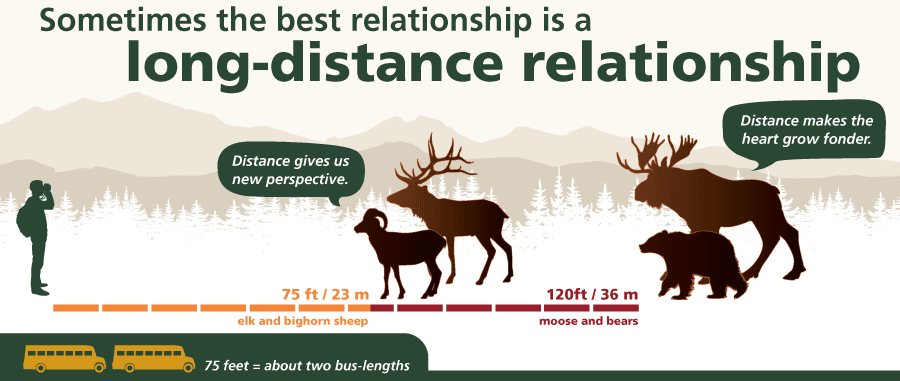
6. Navigation Tips
Navigating in the mountains requires skill and preparation. Here are essential navigation tips:
Use a Map and Compass
- Learn Basic Skills: Understand how to read topographic maps and use a compass effectively.
- Practice Before You Go: Familiarize yourself with your navigation tools in a safe environment.
Technology Aids
- GPS Devices: While useful, don’t rely solely on technology. Always carry a physical map and compass as backups.
- Landmarks: Use natural features to help orient yourself and keep track of your route.
For more navigation tips, check out How To Use A Compass Without A Map .
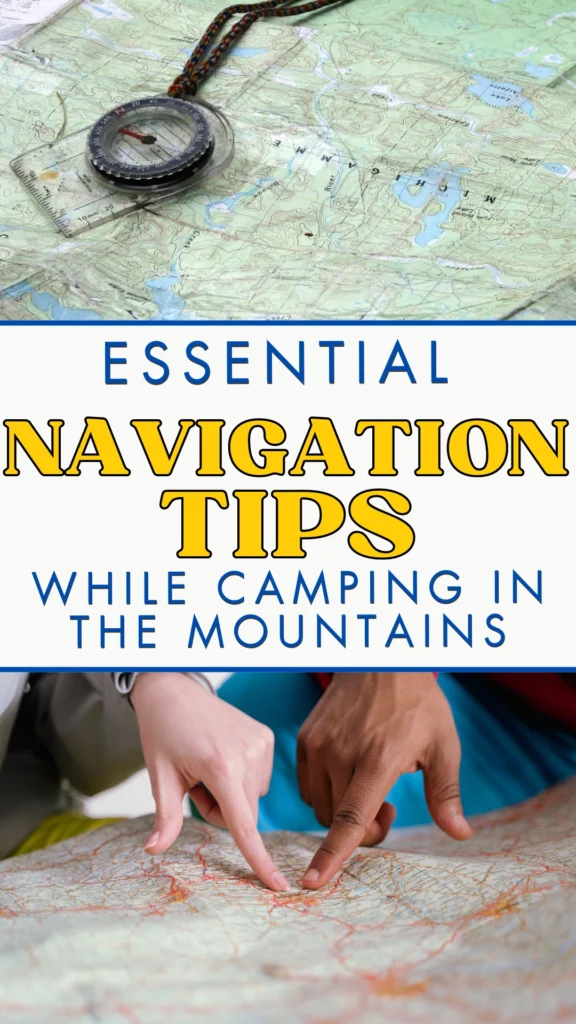

By following these detailed tips and guidelines, you can ensure a safe and enjoyable mountains camping experience. Preparation is key, so take the time to plan your trip thoroughly. Happy camping!